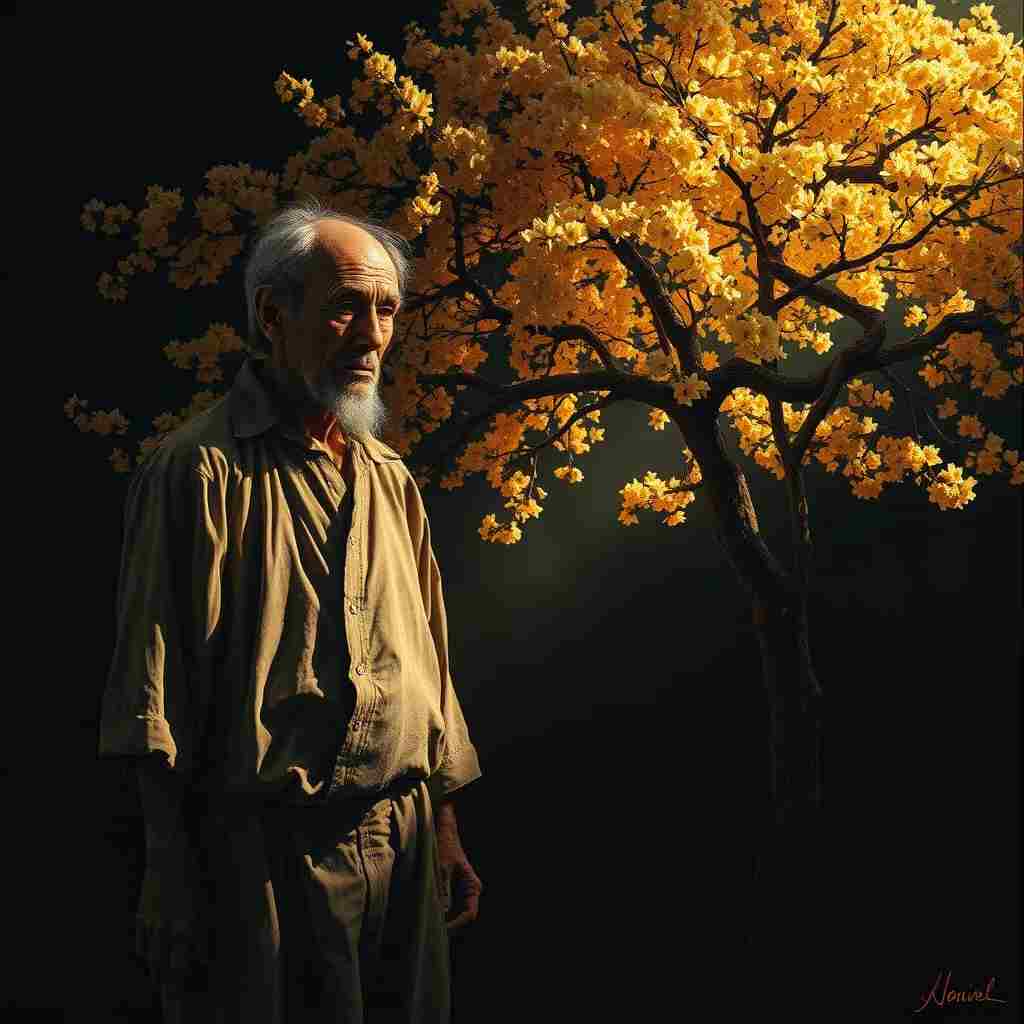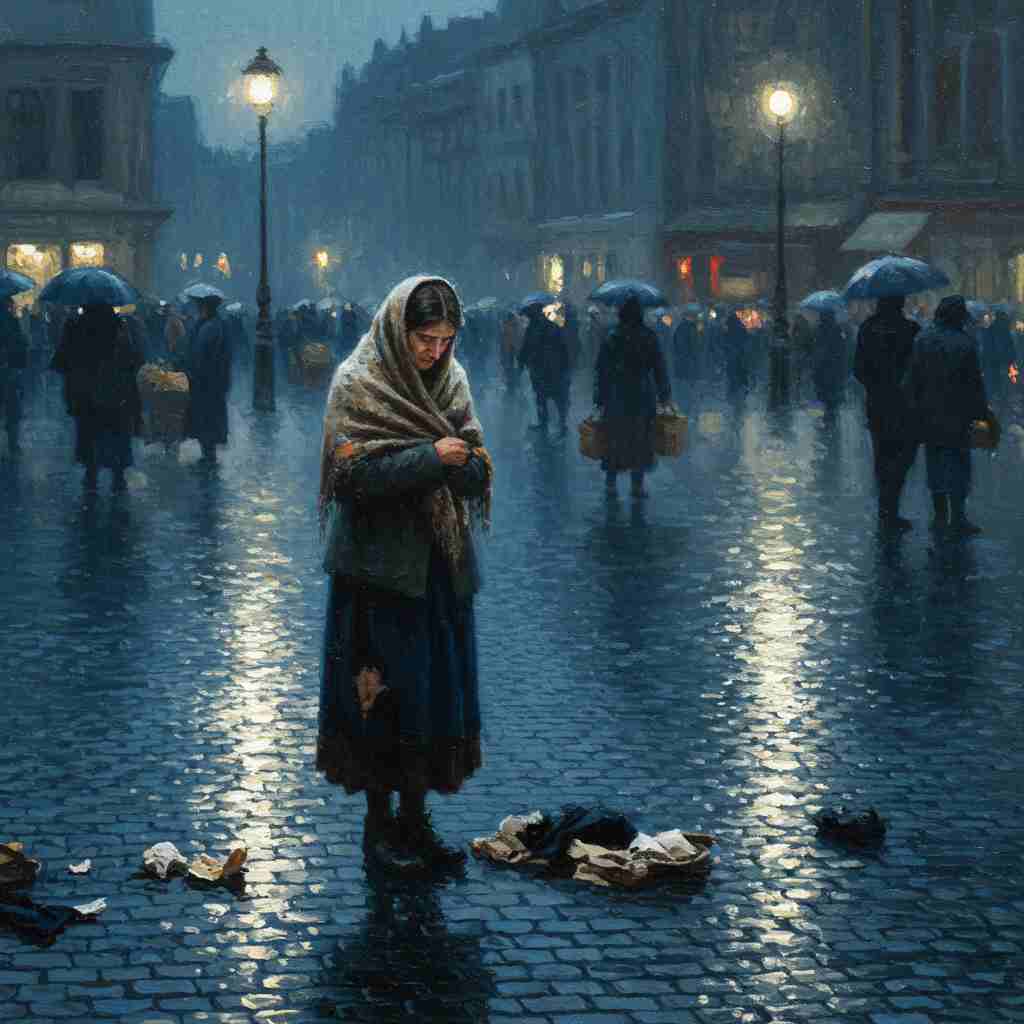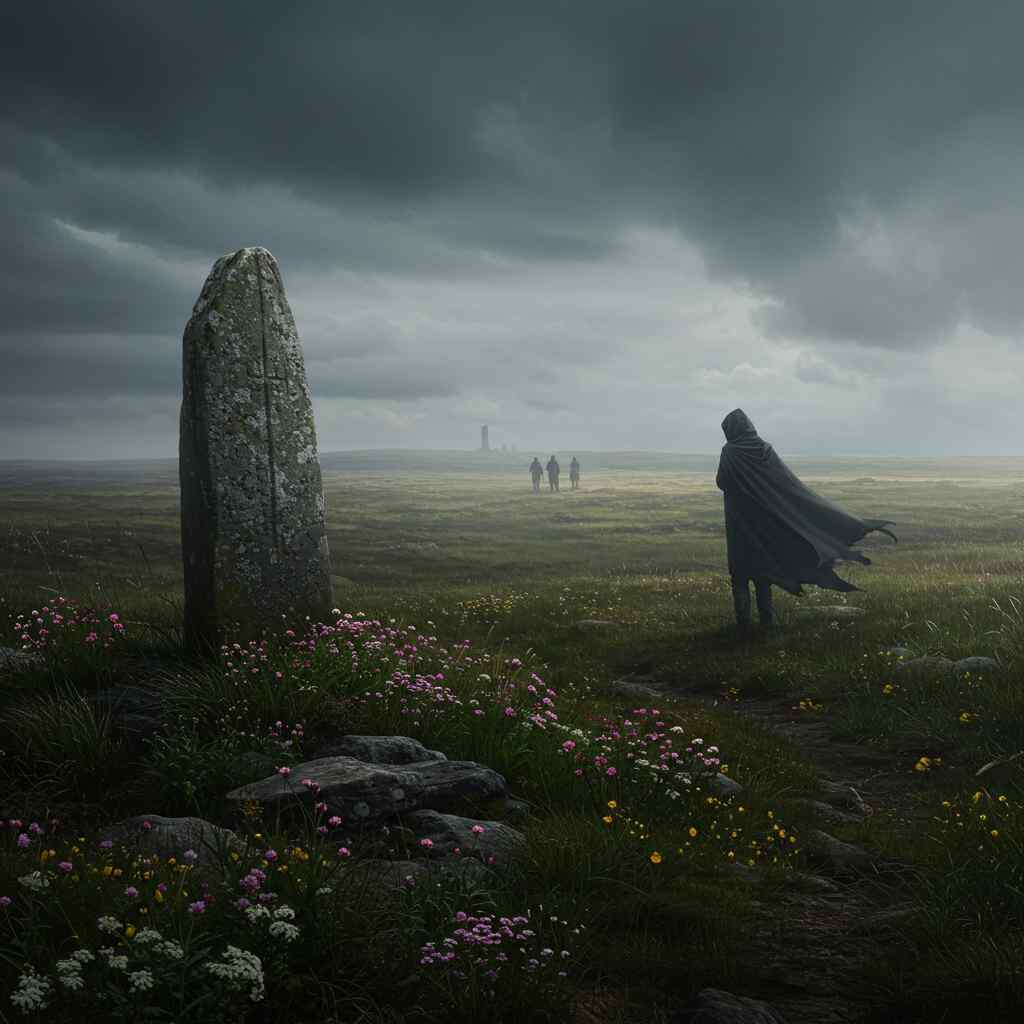13 Poems by W. H. Davies
1871 - 1940
W. H. Davies Biography
William Henry Davies, widely known as W. H. Davies, is a unique figure in English poetry whose life story is as captivating as his verses. Born in 1871 in the impoverished Welsh port town of Newport, Davies lived a life that oscillated between poverty, vagrancy, and modest literary acclaim, shaping a poetic voice marked by simplicity, introspection, and a deep reverence for nature. His life and work challenged the conventions of early 20th-century British society, offering a blend of lyrical beauty, social commentary, and personal reflection that continue to engage readers and scholars alike.
Davies’s early life was marked by hardship. His father died when Davies was only three, leaving his mother to support him and his siblings. This early brush with loss fostered in Davies a sense of independence and resilience, characteristics that would shape his future choices. At school, he showed a mild interest in literature but was not academically distinguished. Newport was a bustling industrial town, and the early exposure to the working class and the hardships they endured would later find expression in Davies's poetry, which often reflected the plight of the poor and the disinherited.
A defining moment in Davies's life came at the age of 22, when he left for America, lured by a desire for adventure and freedom. This journey marked the beginning of Davies's wandering years, during which he experienced poverty firsthand, living as a hobo, wandering the railroads, and working odd jobs across the United States and Canada. For much of the 1890s, Davies lived on the fringes of society, often sleeping rough and depending on charity. His encounters with other travelers and the marginalized members of society sharpened his understanding of poverty, forging a compassionate and socially aware outlook. These experiences in America were pivotal for Davies, not just in shaping his worldview but also in honing his sense of observation and attunement to the ordinary, often overlooked aspects of life.
In 1899, Davies’s travels came to an abrupt end when he suffered a serious injury while attempting to board a moving train bound for Ontario. He lost his right foot in the accident, an event that marked the end of his wandering years and altered the course of his life. The accident was a transformative moment for Davies; while it confined him physically, it also spurred his commitment to poetry. Now reliant on a wooden leg and limited in mobility, Davies returned to England, where he began channeling his experiences into writing. His commitment to writing led him to London, where he immersed himself in the city’s literary scene, but his early attempts to gain recognition were met with rejection and indifference. Davies was undeterred, however, and in 1905, he took the bold step of self-publishing his first collection, The Soul's Destroyer and Other Poems, using money saved from a modest annuity he received due to his disability.
The book attracted little attention initially, but Davies’s perseverance soon paid off when he attracted the attention of influential literary figures. His breakthrough came through a fateful meeting with Edward Thomas, then a literary critic and poet who recognized Davies's talent and introduced him to the literary circle of the Georgian poets. Thomas was instrumental in fostering Davies's career, providing encouragement and helping him refine his craft. Through Thomas, Davies also came to the attention of George Bernard Shaw, who was intrigued by Davies’s unconventional background and encouraged him to publish his memoirs. This resulted in the publication of The Autobiography of a Super-Tramp in 1908, a book that brought Davies both fame and critical acclaim. In his autobiography, Davies provided a vivid account of his years as a vagabond, capturing the grit and rawness of life on the road with an honesty that resonated with readers. Shaw, who wrote the introduction, praised Davies’s simplicity and sincerity, qualities that made his work accessible to a broad audience.
Davies's poetry is characterized by its directness and simplicity, traits that contrast sharply with the opulent, sometimes elusive language of his modernist contemporaries. His verses are often short, lyrical, and marked by a profound sense of wonder for the natural world. His most famous poem, "Leisure," which opens with the lines, "What is this life if, full of care, / We have no time to stand and stare," encapsulates his ethos. In this poem, Davies advocates for a slower, more contemplative existence, one that values the beauty of nature and the importance of presence. His work frequently explores the tension between the demands of modern life and the simplicity of nature, reflecting his own ambivalence toward urbanization and industrial progress. In this respect, Davies’s poetry aligned him with the Georgian poets, a group known for their rejection of modernist experimentation and preference for more traditional forms and themes.
The simplicity of Davies’s poetry is deceptive; beneath his plain language lies a deep philosophical inquiry into life’s fundamental questions. His observations of nature are not merely descriptive but meditative, often exploring the relationship between humanity and the natural world. Poems like “The Rain” and “The Kingfisher” reveal Davies’s acute sensitivity to the subtleties of his surroundings, capturing fleeting moments with an intimacy that evokes William Wordsworth’s nature-inspired verse. Like Wordsworth, Davies saw nature as a source of spiritual renewal and solace. Yet unlike Wordsworth’s often lofty idealism, Davies's approach is grounded in the practical realities of his life experiences, lending his work an authenticity that resonates with readers who feel the strains of modern life.
Davies’s later years saw a modest but enduring literary success, though he remained somewhat outside the mainstream literary circles of his time. While the Georgians enjoyed popularity, they were gradually eclipsed by the modernists, whose experimental styles and complex themes dominated the literary landscape in the early 20th century. Davies was not averse to the modernist movement, but his work retained a stylistic consistency that set him apart. In a period when poets like T.S. Eliot and Ezra Pound were reshaping English poetry, Davies remained committed to the clarity and simplicity that defined his voice. This commitment to accessibility made him a popular figure among readers who found modernist poetry inaccessible or overly esoteric.
Despite his modest fame, Davies led a largely solitary and private life. In 1923, he married Helen Payne, a former prostitute twenty years his junior, in a relationship that surprised and scandalized many of his acquaintances. The marriage, however, proved to be a source of stability for Davies, and by all accounts, the couple shared a deep affection. His later poetry reflects this sense of contentment, with poems that focus less on the hardships of life and more on domestic harmony and the pleasures of companionship.
As Davies grew older, his health declined, and he withdrew further from public life. Nevertheless, his poetry continued to find an audience, especially among those who were drawn to its simplicity and lyricism. His legacy as a poet remains complex; while he is celebrated for his lyrical treatment of nature and his advocacy for a simpler life, he is often overshadowed by his modernist contemporaries. However, his work has undergone a revival in recent years, with scholars and readers alike rediscovering the quiet beauty and humanity of his verse. Today, Davies is remembered not just as a poet but as a cultural figure who embodied the spirit of resilience and the pursuit of individual freedom.
Davies’s life and poetry offer a rare window into a world that is both intensely personal and universally relatable. His ability to find beauty in the mundane and his compassion for the marginalized remain resonant qualities, speaking to a timeless need for connection with nature and each other. In a fast-paced, increasingly mechanized world, his call to "stand and stare" has perhaps never been more relevant. Through his poems, Davies reminds us of the power of simplicity, the value of presence, and the importance of living a life attuned to the rhythms of nature. His voice, humble yet profound, continues to speak across the years, inviting us to pause, reflect, and appreciate the world around us in all its fleeting, fragile beauty.
This text was generated by AI and is for reference only. Learn more
Username Information
No username is open
Unique usernames are free to use, but donations are always appreciated.
Quick Links
© 2024-2025 R.I.Chalmers (V2Melody).

All music on this site by R.I.Chalmers (V2Melody) is licensed under a Creative Commons Attribution-NonCommercial 4.0 International License.
Attribution Requirement:
When using this music, you must give appropriate credit by including the following statement (or equivalent) wherever the music is used or credited:
"Music by R.I.Chalmers (V2Melody) – https://v2melody.com"
Support My Work:
If you enjoy this music and would like to support future creations, donations are always welcome but never required.
Donate













